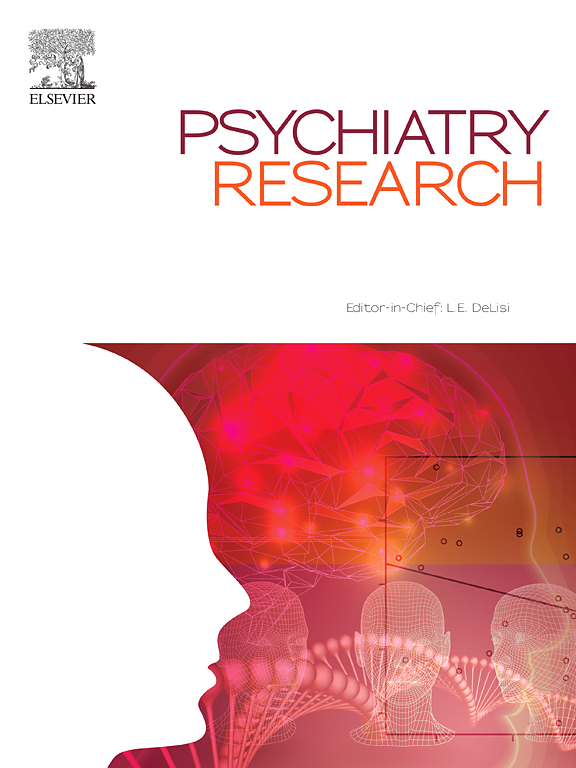Emotional memory biases in bipolar depressed patients with high suicide risk
IF 4.2
2区 医学
Q1 PSYCHIATRY
引用次数: 0
Abstract
Emotional memory bias, a neurocognitive deficit commonly observed in mood disorders, refers to the tendency to remember emotionally charged information more precisely than healthy individuals. While this phenomenon has been explored in various psychiatric conditions, its specific relationship with suicide risk in patients with bipolar disorder during major depressive episodes remains unknown. Given the high prevalence of suicide in bipolar disorder, this study sought to examine the association between emotional memory bias and suicide risk in patients with bipolar depression. A recognition memory task was utilized, where participants (51 high-risk, 21 low-risk) viewed words with positive or negative valence and later identified whether they had been previously presented. Mixed-model analyses of covariance, controlling for age and depression severity, revealed that the high-risk group demonstrated a stronger bias toward negative stimuli. They exhibited more accurate recognition of negative words (“hits”) and a higher tendency to incorrectly identify non-presented negative words as presented (“false alarms”) compared to the low-risk group. These findings suggest that heightened emotional memory bias, particularly toward negative information, may be a key cognitive marker of suicide risk in patients with bipolar depression. Understanding this bias may inform targeted interventions aimed at reducing suicide risk in this population.
求助全文
约1分钟内获得全文
求助全文
来源期刊

Psychiatry Research
医学-精神病学
CiteScore
17.40
自引率
1.80%
发文量
527
审稿时长
57 days
期刊介绍:
Psychiatry Research offers swift publication of comprehensive research reports and reviews within the field of psychiatry.
The scope of the journal encompasses:
Biochemical, physiological, neuroanatomic, genetic, neurocognitive, and psychosocial determinants of psychiatric disorders.
Diagnostic assessments of psychiatric disorders.
Evaluations that pursue hypotheses about the cause or causes of psychiatric diseases.
Evaluations of pharmacologic and non-pharmacologic psychiatric treatments.
Basic neuroscience studies related to animal or neurochemical models for psychiatric disorders.
Methodological advances, such as instrumentation, clinical scales, and assays directly applicable to psychiatric research.
 求助内容:
求助内容: 应助结果提醒方式:
应助结果提醒方式:


